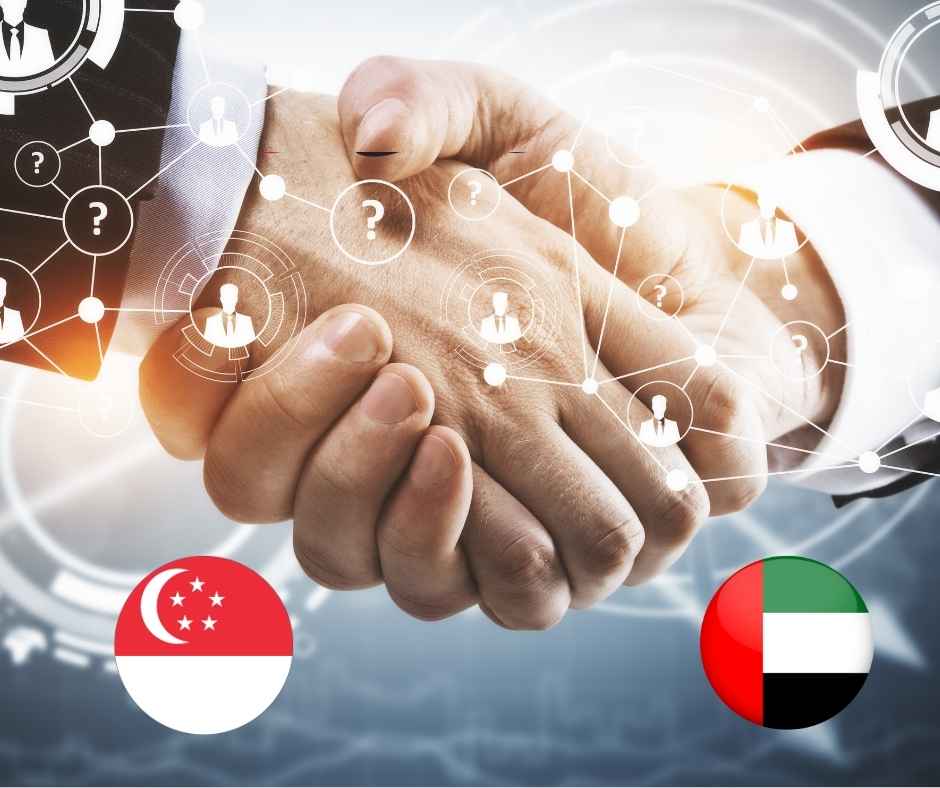In a major move signaling economic resilience, Singapore and the United Arab Emirates (UAE), along with several other smaller nations, have announced a strategic trade partnership in 2025. This alliance aims to boost trade flows, simplify regulations, and strengthen economic cooperation amid growing protectionist policies worldwide.
As global trade dynamics shift, particularly under the influence of countries adopting more inward-looking policies, smaller nations are increasingly taking proactive steps to secure market access, attract investments, and maintain economic growth. The Singapore UAE trade partnership 2025 is a prime example of this trend.
Why the Partnership Matters
The partnership comes at a time when global markets face uncertainty. Trade barriers and tariffs, especially in major economies, have challenged international commerce. By joining forces, Singapore, UAE, and other small but influential nations are sending a clear message: open markets and cooperation remain key to sustainable economic development.
Experts say this collaboration will:
- Strengthen trade relations between member nations
- Facilitate technology transfer and innovation
- Promote financial and logistic services integration
- Counterbalance global protectionist trends
“Smaller nations have the agility to respond to economic disruptions more effectively than larger economies,” said a senior trade analyst. “The Singapore UAE trade partnership 2025 demonstrates a commitment to collaboration and market openness.”
Sectors Benefiting from the Trade Alliance
The partnership is not limited to a single industry. Key sectors expected to benefit include:
- Technology and Innovation – Reducing barriers for tech startups and cross-border digital services
- Financial Services – Promoting investment flows and streamlined regulations
- Logistics and Supply Chains – Enhancing efficiency in transportation and customs processes
- Trade in Goods – Lowering tariffs and simplifying export-import procedures
By focusing on these sectors, the alliance aims to create a business-friendly environment that encourages both domestic and foreign investment.
WTO and Trade Openness
The partnership aligns closely with ongoing discussions at the World Trade Organization (WTO), where members advocate for “trade openness” and collaboration. In the era of rising protectionism, especially in larger economies, smaller nations are increasingly uniting to safeguard free trade principles.
The WTO emphasizes that open trade contributes not only to economic growth but also to global stability, innovation, and employment. The Singapore UAE trade partnership 2025 is in line with these objectives, demonstrating how smaller economies can act decisively to shape global trade agendas.
Implications for Global Trade
The new alliance is expected to:
- Strengthen smaller economies’ influence in international trade
- Encourage cross-border investments and partnerships
- Offer alternative trade routes and opportunities outside major power blocs
- Set a model for other nations looking to counter protectionist policies
Analysts suggest that these measures could redefine trade networks, encouraging more agile and strategic collaboration between smaller nations worldwide.
The Singapore UAE trade partnership 2025 marks a strategic step for small nations seeking resilience in an unpredictable global economy. By prioritizing open markets, regulatory simplification, and sector-specific collaboration, the alliance is set to become a blueprint for similar initiatives worldwide.
As global trade policies continue to evolve, this partnership highlights the role of smaller, agile economies in shaping a future of sustainable growth, investment, and cooperation.
Follow DFmedia for the latest in global trade news and insights. Stay informed on key developments that shape finance and commerce worldwide.







